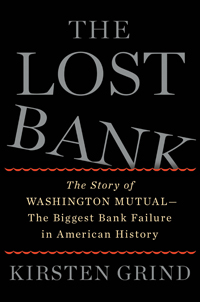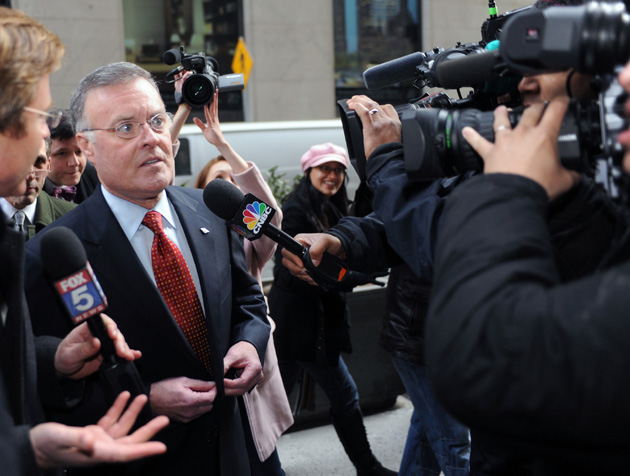 The Lost Bank
The Lost Bank
By Kirsten Grind
SIMON & SCHUSTER
The collapse of Washington Mutual, which the Federal Deposit Insurance Corporation placed in receivership in 2008 near the outset of the Great Recession, was the largest bank failure in US history. Yet in comparison to the crashes and bailouts on Wall Street, it received little in-depth coverage outside its Seattle hometown. Reporting for a small paper in nearby Puget Sound, Kirsten Grind, who now writes for the Wall Street Journal, followed the story meticulously and was named a Pulitzer finalist for her troubles. The Lost Bank, out this week, is the culmination of her award-winning work.
Packaged as a narrative tragedy, the book tells the story of WaMu’s adept transition to a publicly traded company under CEO Lou Pepper in 1983, successor Kerry Killinger’s failed attempt to establish the “Wal-Mart of banking” to cater to Main Street, and a last-ditch three-week effort after Killinger’s ouster that failed to convince the feds to save the company. Along the way, WaMu’s down-home sensibilities and the “frugal is sexy” work ethic that steered the bank back to profitability through the savings and loan debacle succumbed to the allure of the subprime bubble.
A former senior financial analyst at the company told Grind that the day after WaMu failed, executives from JP Morgan, which had snapped up most of the bank’s assets for $1.9 billion, descended on it headquarters. “They were exactly what we were trying not to be,” the analyst said. “The classic stodgy banker.” In the storytelling, Grind manages to make the wonky accessible and portray her characters as fallible human beings, as opposed to the usual Wall Street caricatures.















